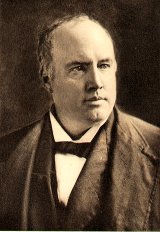Agnosticism
Agnosticism is a term that encompasses a range of views about the existence of God and the possibility of knowledge about the divine or supernatural. The concept is often contrasted with theism, the belief in the existence of one or more deities, and atheism, the absence of belief in the existence of any deities. Agnosticism is not a statement about belief or disbelief in God; rather, it is about the limits of human knowledge and the ability to know anything about the existence or non-existence of a deity.
Definition[edit | edit source]
The term "agnosticism" was coined by the English biologist Thomas Henry Huxley in 1869 to describe his philosophical position regarding the existence of the divine. Huxley defined agnosticism not as a creed but rather as a method of skeptical, evidence-based inquiry. Agnostics maintain that it is impossible for human beings to know anything about the creation of the universe or whether divine beings exist. The agnostic position can be summarized as the view that the truth values of certain claims—especially metaphysical and religious claims such as whether God, the divine, or the supernatural exist—are unknown and perhaps unknowable.
Types of Agnosticism[edit | edit source]
Agnosticism can be divided into several subtypes:
- Strong Agnosticism (or Hard Agnosticism) argues that it is impossible for humans to know anything about the existence or non-existence of God or gods.
- Weak Agnosticism (or Soft Agnosticism) holds that the existence or non-existence of any deities is currently unknown but is not necessarily unknowable.
- Empirical Agnosticism asserts that personal experience and empirical evidence are the only basis for knowledge about the world and that since God or the divine cannot be observed or measured, knowledge about them is inherently inaccessible.
- Apathetic Agnosticism (or Pragmatic Agnosticism) claims that since the existence of deities has no apparent impact on personal human experience, the question of their existence is irrelevant and unimportant.
Agnosticism vs. Atheism and Theism[edit | edit source]
Agnosticism is often seen as a middle ground between atheism and theism, but this is a simplification. While atheism and theism deal with belief, agnosticism deals with knowledge or the lack thereof. An individual can be an agnostic atheist, not believing in any gods but also believing that the existence or non-existence of gods is unknowable. Similarly, one can be an agnostic theist, believing in the existence of a god or gods but acknowledging that this belief is not based on knowledge.
Philosophical and Religious Implications[edit | edit source]
Agnosticism has significant implications for religious and philosophical discourse. It challenges the certainty with which many religious claims are made and calls for a more skeptical and empirical approach to questions of existence and knowledge. In the realm of philosophy, agnosticism raises important questions about the nature and limits of human understanding and the epistemological criteria for knowledge.
Criticism[edit | edit source]
Agnosticism has been criticized from both theistic and atheistic perspectives. Some theists argue that agnosticism is a cop-out or an indecisive position, while some atheists contend that agnosticism is unnecessary because the lack of evidence for deities is sufficient to justify disbelief. Despite these criticisms, agnosticism remains a significant and influential perspective in discussions about the existence of the divine and the limits of human knowledge.
This article is a philosophy-related stub. You can help WikiMD by expanding it!
Search WikiMD
Ad.Tired of being Overweight? Try W8MD's physician weight loss program.
Semaglutide (Ozempic / Wegovy and Tirzepatide (Mounjaro / Zepbound) available.
Advertise on WikiMD
|
WikiMD's Wellness Encyclopedia |
| Let Food Be Thy Medicine Medicine Thy Food - Hippocrates |
Translate this page: - East Asian
中文,
日本,
한국어,
South Asian
हिन्दी,
தமிழ்,
తెలుగు,
Urdu,
ಕನ್ನಡ,
Southeast Asian
Indonesian,
Vietnamese,
Thai,
မြန်မာဘာသာ,
বাংলা
European
español,
Deutsch,
français,
Greek,
português do Brasil,
polski,
română,
русский,
Nederlands,
norsk,
svenska,
suomi,
Italian
Middle Eastern & African
عربى,
Turkish,
Persian,
Hebrew,
Afrikaans,
isiZulu,
Kiswahili,
Other
Bulgarian,
Hungarian,
Czech,
Swedish,
മലയാളം,
मराठी,
ਪੰਜਾਬੀ,
ગુજરાતી,
Portuguese,
Ukrainian
Medical Disclaimer: WikiMD is not a substitute for professional medical advice. The information on WikiMD is provided as an information resource only, may be incorrect, outdated or misleading, and is not to be used or relied on for any diagnostic or treatment purposes. Please consult your health care provider before making any healthcare decisions or for guidance about a specific medical condition. WikiMD expressly disclaims responsibility, and shall have no liability, for any damages, loss, injury, or liability whatsoever suffered as a result of your reliance on the information contained in this site. By visiting this site you agree to the foregoing terms and conditions, which may from time to time be changed or supplemented by WikiMD. If you do not agree to the foregoing terms and conditions, you should not enter or use this site. See full disclaimer.
Credits:Most images are courtesy of Wikimedia commons, and templates, categories Wikipedia, licensed under CC BY SA or similar.
Contributors: Prab R. Tumpati, MD





